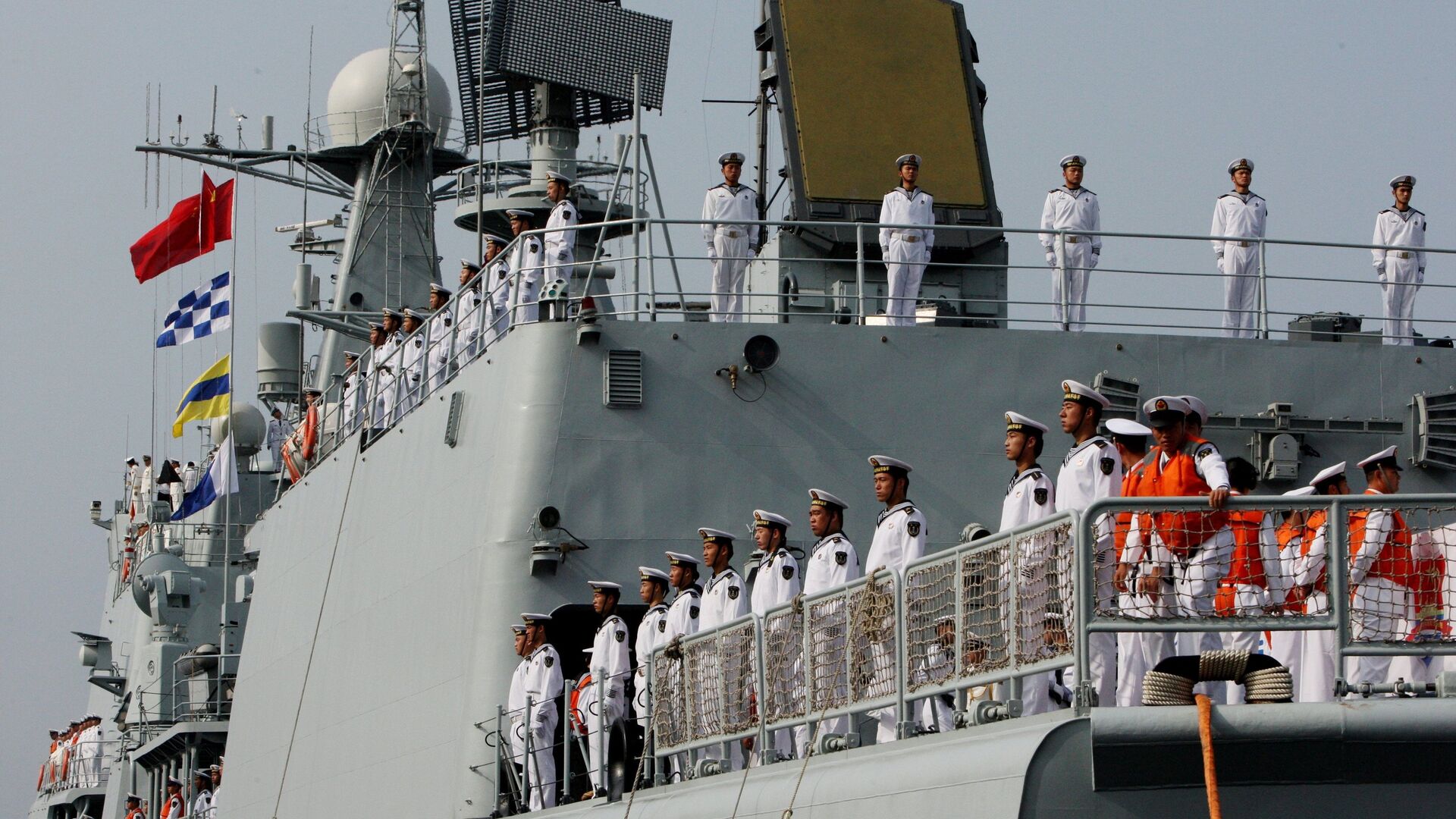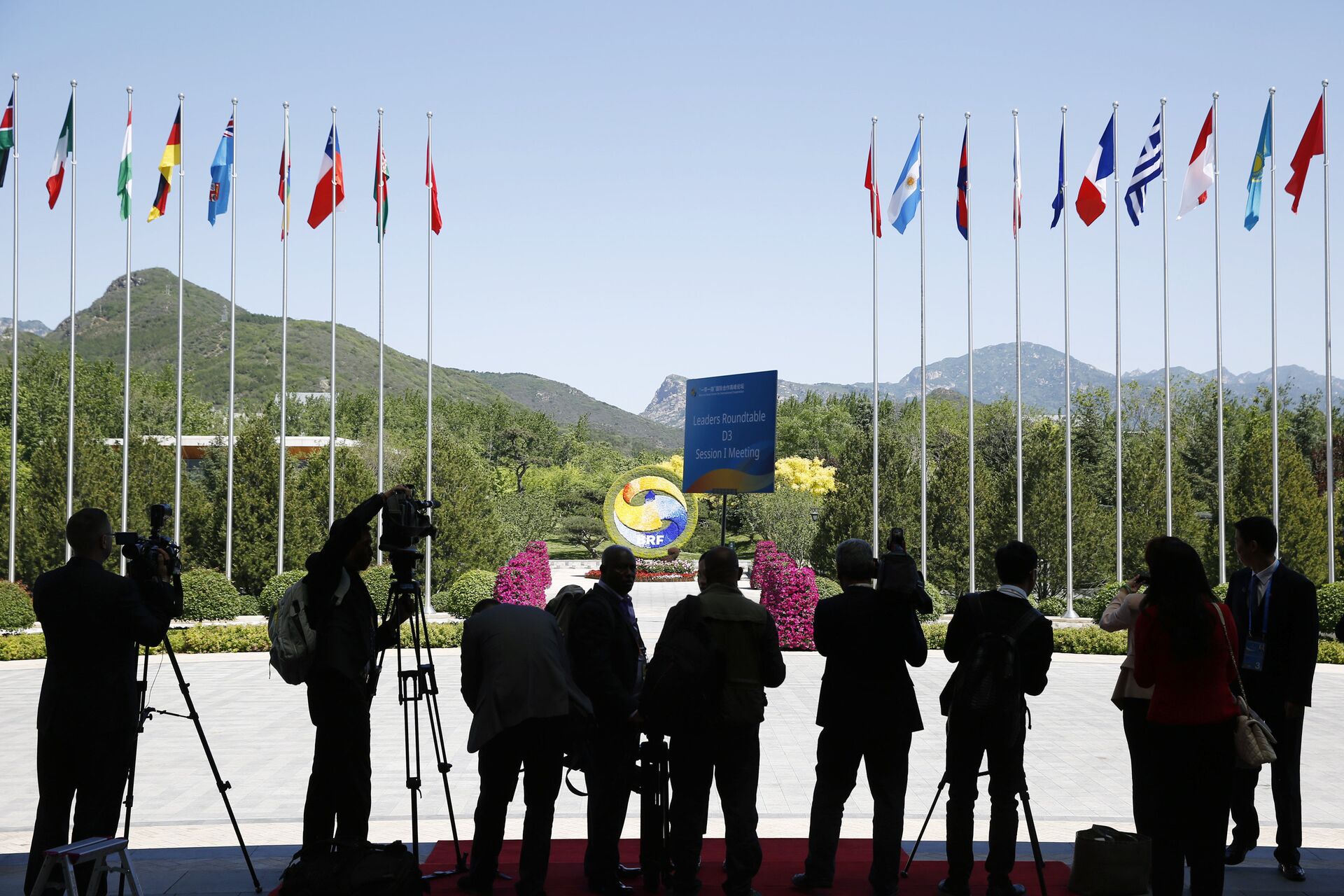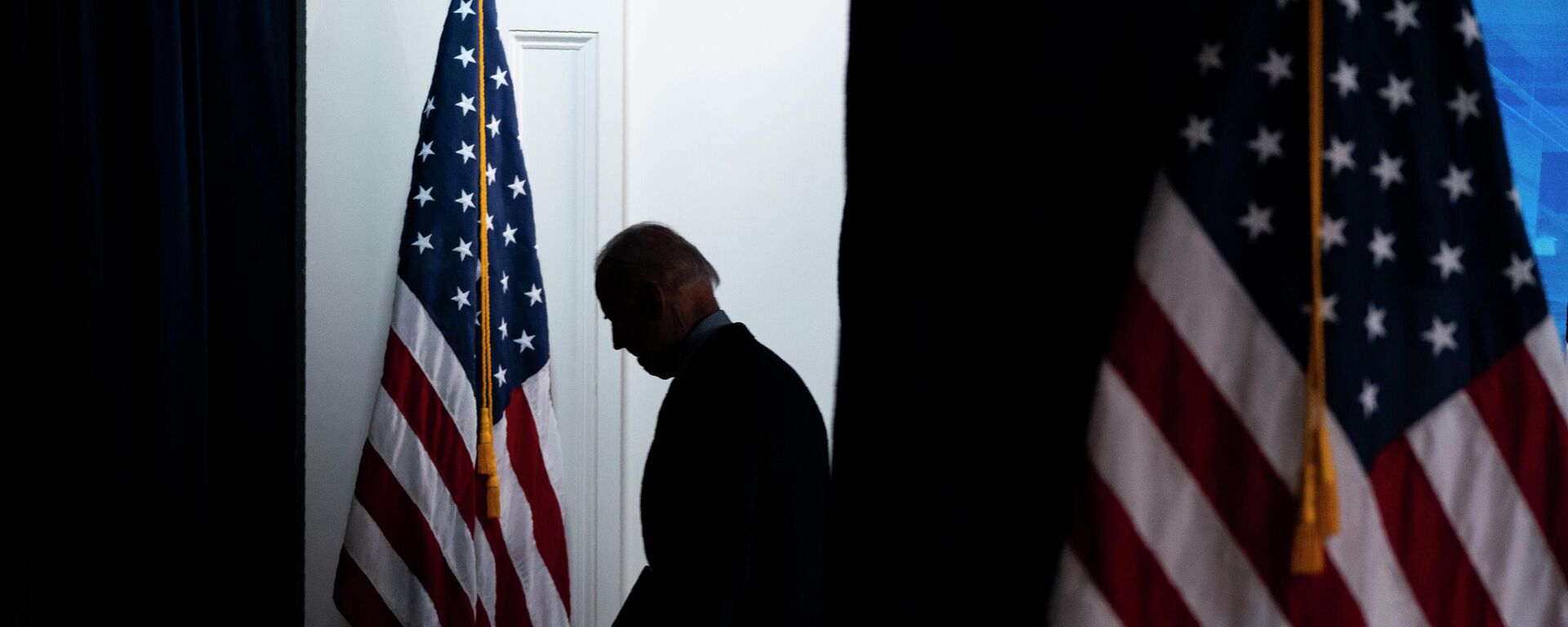Biden's 'Strategic Confusion': Why China Won't Fall Into US Traps in Taiwan & Indo-Pacific
15:08 GMT 24.05.2022 (Updated: 12:43 GMT 19.06.2023)

© Sputnik / Vitaliy Ankov
/ Subscribe
The White House quickly downplayed the president’s purported gaffe about US resolve to protect Taiwan against Beijing. Nevertheless, Biden’s remarks have created widespread confusion and heightened tensions in the Indo-Pacific.
"Pathetically, delivering a statement by the leadership but immediately revised by certain anonymous White House officials is neither 'strategic clarity' nor 'strategic ambiguity' but 'strategic confusion'," says Dr Chang Ching, a research fellow from the Taiwan-based Society for Strategic Studies and a lead military expert on the People's Liberation Army and regional security in Taiwan.
"As a leading power in the international society, Washington should always remember that credibility is an essential asset in strategic calculation. Without trustworthy integrity, 'strategic confusion' may eventually lead to 'strategic stupidity'”, he continued.
The US has pursued a policy of "strategic ambiguity" in the Taiwan Strait for decades. This policy serves two essential goals: sustaining a peaceful status quo and maintaining working relationships with both China and Taiwan. Proponents of "strategic ambiguity" have argued that any potential shift to "strategic clarity" would break the fragile balance of power in the region.
However, many have interpreted Biden’s recent remarks that the US is willing to defend Taiwan militarily in the case of a Chinese attack as constituting a departure from this longstanding US policy, forcing the White House to intervene and play down the president's comments. Biden was speaking from the Quad meeting in Tokyo on 23 May.
"It is always very sad to see the White House officials need to explain what the US president meant to say right after Mr Biden released his statement in public", says Dr Chang.
"The Taiwan issue in the China policy held by Washington can be a very straightforward statement satisfying the 'strategic clarity,' should there be no conspiracy hidden behind. Nonetheless, as the US government intentionally playing around the wordings in the policy statement regarding the Taiwan issue in order to create certain unrealistic expectations serving the United States strategic interests, it is essentially an immoral scheme covered by the term known as the 'strategic ambiguity'", he explained.
'Beijing is Aware of US' Long-term Strategic Plot'
Nevertheless, some Chinese observers didn’t buy into the White House's clarifications.
According to the Beijing-based daily Global Times, "Biden’s remarks on 'intervening militarily' in the Taiwan question are not a gaffe but signals [the] hollowing out [of Beijing’s] one-China policy." The media outlet has drawn attention to the fact that this is not the first time that Biden has made a security guarantee to the island of Taiwan.
Furthermore, according to GT staff reporters, Washington is intentionally conflating the Russian special operation in Ukraine with the Taiwan question.
They referred to the US president's notion that deterring China from taking the island was one of the reasons why Russia needed to "pay a dear price" for the conflict. However, the media outlet clarified that the two issues are clearly unrelated.
Nonetheless, Washington has upped the ante against China since the beginning of Russia's special operation.
On 28 February, the White House sent a delegation of former senior defence and security officials to meet Taiwan's president and defence minister, despite Beijing denouncing the move as a violation of China's sovereignty. Simultaneously, reports started to emerge in the US media about the US Indo-Pacific Command's (INDOPACOM) plan to spend $27 billion over the next six years to "deter China".
"Beijing is clearly aware of Washington’s long term strategic plot towards China", says Dr Chang. "Beijing has reiterated its position of retaining neutrality and called for reconciliation towards a peaceful resolution on the Russia-Ukraine conflict. China will not take sides to support the United States against any country; neither will the United States counter Russia nor China together before Washington can totally weaken Moscow through its attrition in Ukraine."

Journalist take pictures outside the venue of a summit at the Belt and Road Forum in Beijing, Monday, May 15, 2017
© AP Photo / Thomas Peter/Pool
US Seeking to Weaken China Economically
While the US is unlikely to take on Russia and China simultaneously, the US foreign policy establishment is seeking to weaken Beijing economically by proposing new economic formats to counter the country's Belt and Road Initiative, amongst others.
On Monday, Biden unveiled the Indo-Pacific Economic Framework (IPEF) which looks to bring together Washington's Asian partners, including Australia, Japan and the Republic of Korea.
"It is still too early to conclude any judgment on the future of the Indo-Pacific Economic Framework for Prosperity yet though the initial responses from many of the US regional alliances and partners are obviously lacking in enthusiasm", says Dr Chang. "There are three major factors behind these reactions: the political future of President Biden after the US midterm election in early November; the homogeneity of the existing Regional Comprehensive Economic Partnership; and, most importantly, unclearly economic prospectivity of the United States itself."
According to the researcher, it would not be profitable for Indo-Pacific countries to bypass China and trade with the US, arguing that the "expectation advocated by economists to argue that the possibility of seeking more economically profitable to trade with the United States instead of China is totally unrealistic."
"To create an economic or trade arrangement among nations will not form a mechanism to isolate or to exclude any party not having the membership of this arrangement", he underscored. "It is not an exclusive arena to deprive the trade opportunity of the outsiders. There is no economic or trade arrangement that may cover all the trading items needed by their members. As long as the ratio among quality, performance and price of the commodities produced is competitive, no country can be totally bypassed."


